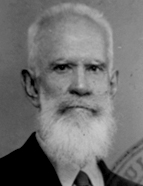

Passive bibliography: Carrara, Ângelo Alves. “O reformismo fiscal pombalino no Brasil”. Historia Caribe, XI(29), 2016, pp 83-111; disponível em ; [consult. 25 de março de 2021]. Cruz, Miguel Dantas da. “Pombal e o Império Atlântico: impactos políticos da criação do Erário Régio”. Revista Tempo, v.20, 2014; disponível em [consult. 25 de março de 2021]. Fragoso, João. “Algumas Notas Sobre a Noção De Colonial Tardio No Rio De Janeiro: Um Ensaio Sobre a Economia Colonial”. Locus: Revista De História , 6 (1), 2000; disponível em [consult. 25 de março de 2021]. Guggenheim Foundation; disponível em [consult.03 de janeiro de 2021]. Pesavento, Fernando, “O colonial tardio e a economia do Rio de Janeiro na segunda metade dos setecentos: 1750-90”. Estudos Econômicos , vol.42, no.3, 2012; disponível em [consult. 25 de março de 2021].
Tânia Veiga
He began his education at the San José School in Alicante and later completed his secondary education at the Jorge Juan Institute in the same city. During these years, he focused on learning languages and claimed to have mastered both English and French. He then studied law at the Faculty of Law and pursued various degrees at the Facultad de Filosofía y Letras de la Universidad de Valencia [Faculty of Philosophy and Philology of the University of Valencia] from 1881 to 1886, graduating in Law on 16 June 1886. He continued his studies for a doctorate at the Facultad de Derecho de la Universidad Central de Madrid [Faculty of Law at the Central University of Madrid] (UCM) from 1886 to 1887. On 16 December 1887, he obtained his doctorate in Civil and Canon Law with a thesis entitled La propiedad comunal en la Edad Media [Communal Property in the Middle Ages].
While in Madrid, he became involved in the liberal-progressive environment, associated with notable figures such as Francisco Giner de los Ríos, Joaquín Costa, Leopoldo García- Alas ("Clarín"), Benito Pérez Galdós, Adolfo González Posada, Buylla, Gumersindo de Azcárate, and Nicolás Salmerón, among others. This group believed they were working for the “good of Spain” and maintained that the ideal of the republican state was not merely about profound structural changes but rather about a theoretical-idealist rebellion expressed through books, pamphlets, and memoirs. Their guiding principles included “overcoming societal problems through education led by a conscientious elite with a strong moral sense, alongside a project aimed at regionalisation while maintaining a sense of unity.” They also shared an evolutionist view of access to culture and a keen interest in the development of experimental science ("Aproximación intelectual e ideológica...", 1987, p. XII). For Altamira, these years were formative, during which he absorbed the ideas of the Institución Libre de Enseñanza [Free Institution of Education] (ILE) and enhanced his training through his work with the Museo Pedagógico Nacional [National Pedagogical Museum], an institution with which he collaborated for several years. This collaboration allowed him to visit various European universities, primarily in France, where he was influenced by French historical positivism ("Estudio preliminar", 1988, p. 10). In France, he attended classes at the Collège de France and met scholars such as Ernest Lavisse, Charles Seignobos, and Langlais at the Sorbonne, while also being a pupil of Renan. His education took on a distinctly scientific-positivist character, diverging somewhat from the tendencies prevalent at ILE, ultimately shaping his intellectual framework as a positivist krausist. Altamira y Crevea adopted many characteristics of these French historians, as she explained and developed in La enseñanza de la historia [The Teaching of History] and La Historia de España y de la civilización española [The History of Spain and Spanish Civilisation], where a series of concepts were applied for the first time, placing him in an advanced position within historical methodology. “He defines the integral character of society and its interdependence, as well as the combination of external and internal historical factors. He also articulates his ideas on education and establishes the starting point for a history that encompasses all the elements and causes of society, utilising other sciences such as sociology and psychology, while integrating economics, institutions, culture, and all other aspects that contribute to this concept of totality.” He seeks similarities among models, affirms the necessity of auxiliary sciences in history, such as literature, the analysis of group psychology, and views humanity as an organic collective that struggles against itself, where moral and social elements are variable, unpredictable, and uncontrollable. “He clearly differentiates between two types of knowledge: disseminative knowledge and that belonging to the realm of specialisation, both of which are complementary tasks" ("Aproximación intelectual e ideológica...", 1987, pp. XII-XIII).
This work is financed by national funds through FCT - Foundation for Science and Technology, I.P, in the scope of the projects UIDB/04311/2020 and UIDP/04311/2020.
